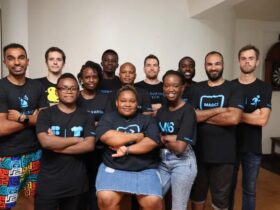In 2024, several African countries are making significant strides in creating a supportive regulatory framework for blockchain technology and cryptocurrency, aiming to foster innovation and protect investors. Here’s an overview of the regulatory advancements in Nigeria and South Africa.
Nigeria’s Regulatory Sandbox
Nigeria, Africa’s largest economy, has introduced a regulatory sandbox under the guidance of the Central Bank of Nigeria (CBN). This initiative is designed to provide a controlled environment where fintech companies can test innovative financial products, services, and business models with regulatory oversight. The sandbox aims to balance innovation with consumer protection and financial stability.
The CBN’s sandbox allows participants to conduct live tests of new solutions, helping to identify potential regulatory and operational challenges before full-scale deployment. This initiative has already seen notable developments, including the approval of the cNGN stablecoin, which is designed to facilitate remittances and provide a stable digital currency pegged to the Nigerian Naira. The cNGN stablecoin operates under the regulatory standards set by the CBN and the Nigerian Securities and Exchange Commission, highlighting a collaborative approach to regulatory oversight (CBN Sandbox) (Cointelegraph) (Mondaq).
South Africa’s FSCA Initiatives
In South Africa, the Financial Sector Conduct Authority (FSCA) is actively working on comprehensive regulations to oversee cryptocurrency activities. The FSCA’s efforts are focused on protecting investors while promoting market growth and innovation. In 2024, the FSCA has proposed regulatory frameworks that include licensing requirements for crypto asset service providers, guidelines for anti-money laundering (AML) and counter-terrorism financing (CTF), and measures to ensure consumer protection.
These regulations are designed to provide clarity and stability in the cryptocurrency market, encouraging both domestic and international investments. The FSCA’s proactive stance is aimed at integrating cryptocurrencies into the broader financial system, ensuring that these digital assets are subject to the same standards as traditional financial products (Mondaq).
Implications for Investors
For investors, these regulatory advancements in Nigeria and South Africa represent significant opportunities. The structured environments provided by the regulatory sandboxes in Nigeria and the comprehensive frameworks in South Africa offer a safer and more predictable investment landscape. Here are some key takeaways for investors:
- Enhanced Security and Compliance: With clear regulatory guidelines, investments in blockchain and cryptocurrency projects are subject to rigorous scrutiny, reducing risks associated with fraud and non-compliance.
- Market Growth: Regulatory support is likely to spur growth in the fintech and cryptocurrency sectors, creating a fertile ground for innovative startups and technologies.
- Cross-Border Opportunities: The harmonization of regulatory standards across African countries can facilitate cross-border investments and collaborations, enhancing the overall market potential.
- Consumer Confidence: Improved regulatory frameworks are expected to boost consumer confidence in digital financial products, driving higher adoption rates and market penetration.
By staying informed about these regulatory developments and engaging with local stakeholders, investors can strategically position themselves to capitalize on the burgeoning blockchain and cryptocurrency markets in Africa.
For more detailed information, you can visit the Central Bank of Nigeria’s regulatory sandbox page and the latest updates from the Financial Sector Conduct Authority of South Africa (CBN Sandbox) (Mondaq).
Author: Brian Oji


















